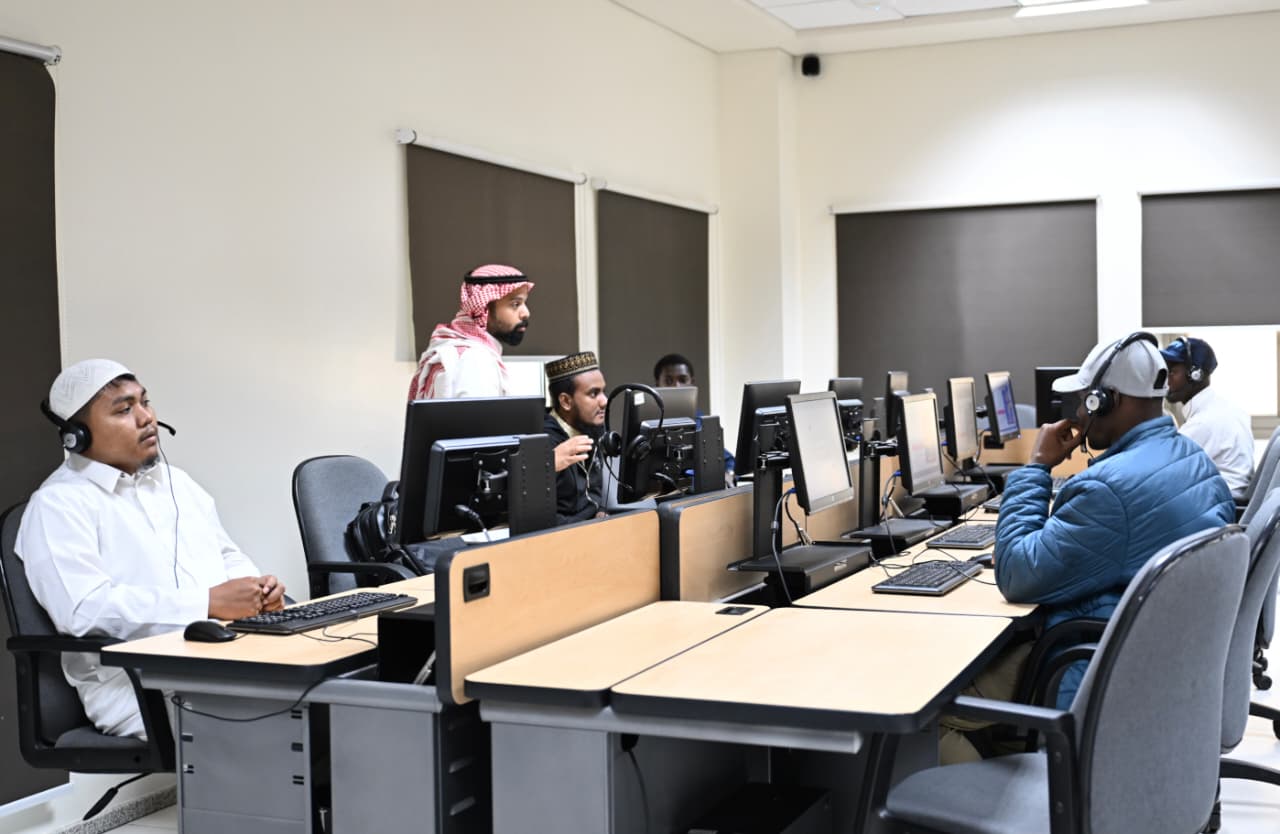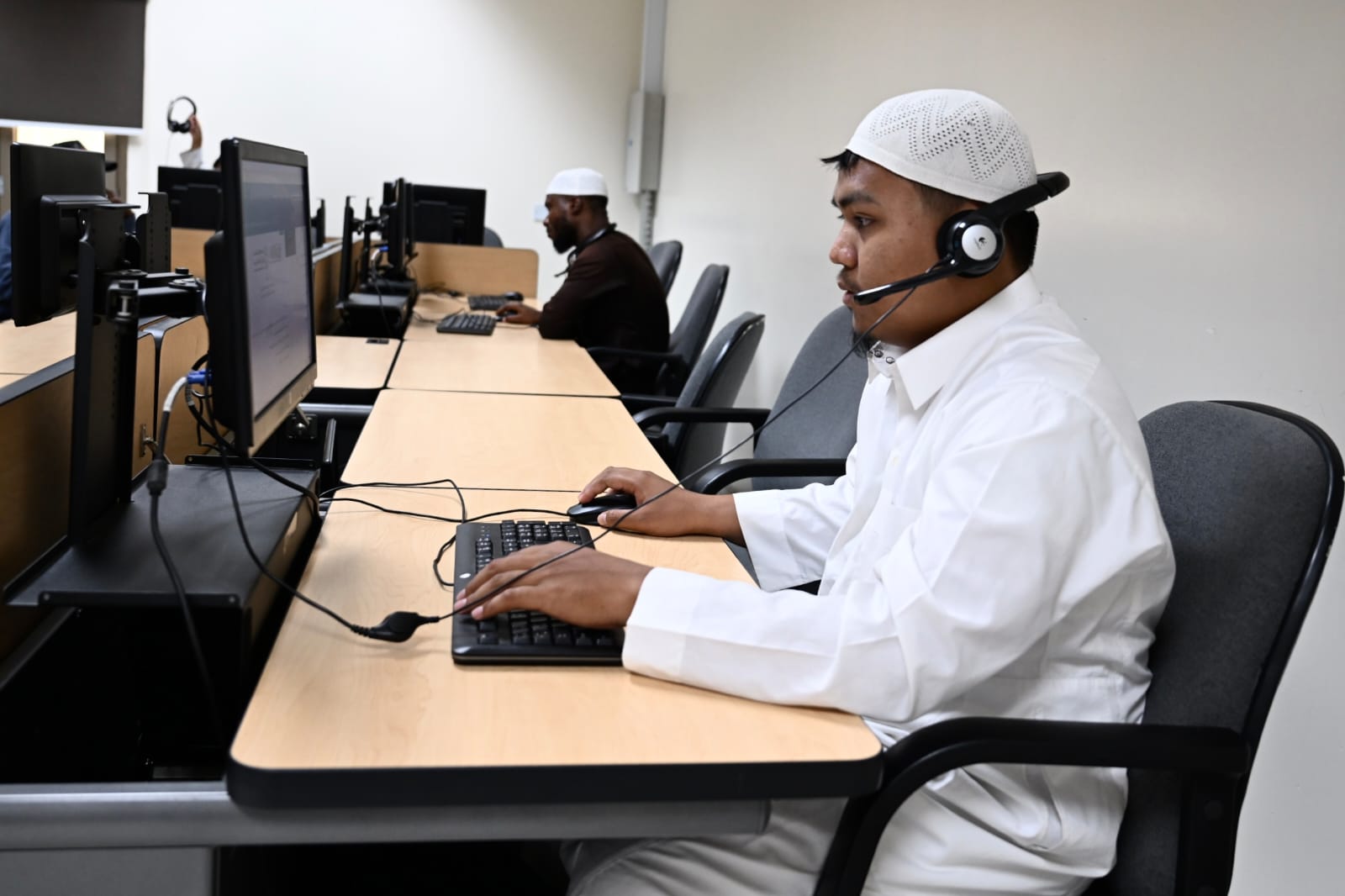King Abdulaziz University, represented by the Arabic Language Institute for Speakers of Other Languages, hosted the “Hamza” Academic Arabic Proficiency Test for non-native speakers on Tuesday, October 7, 2025, in collaboration with the King Salman Global Academy for the Arabic Language.
The event took place at the King Fahd Medical Research Center.
The Hamza Academic Assessment measures Arabic language proficiency for international students across four core language skills, listening, reading, writing, and speaking, through a computer-based standardized test developed in accordance with the Common European Framework of Reference for Languages (CEFR).
The test provides participants from around the world with a detailed report evaluating their proficiency in Arabic.
The “Hamza” test targets learners of Arabic in universities, institutes, and educational centers, as well as employers seeking to assess Arabic proficiency.
It aims to strengthen the presence and academic status of the Arabic language locally, regionally, and globally, while establishing a recognized international standard for measuring Arabic proficiency among non-native speakers.
It also provides valuable insights for universities and Arabic language institutes to determine the proficiency levels of their non-Arabic-speaking students.

Commenting on the event, Dr. Badr Al-Otaibi, Dean of the Arabic Language Institute for Speakers of Other Languages, said:
“The Hamza Academic Test represents an important milestone for our international students, providing a reliable, scientific tool to accurately assess their Arabic proficiency. It helps them develop their linguistic skills in line with academic requirements and enhances their future opportunities. Hosting this test at the University, in cooperation with the King Salman Global Academy for the Arabic Language, reflects the Kingdom’s leading role in promoting and preserving the Arabic language in alignment with Saudi Vision 2030.”
The initiative reflects King Abdulaziz University’s ongoing commitment to fostering linguistic excellence and strengthening the global presence of the Arabic language.

